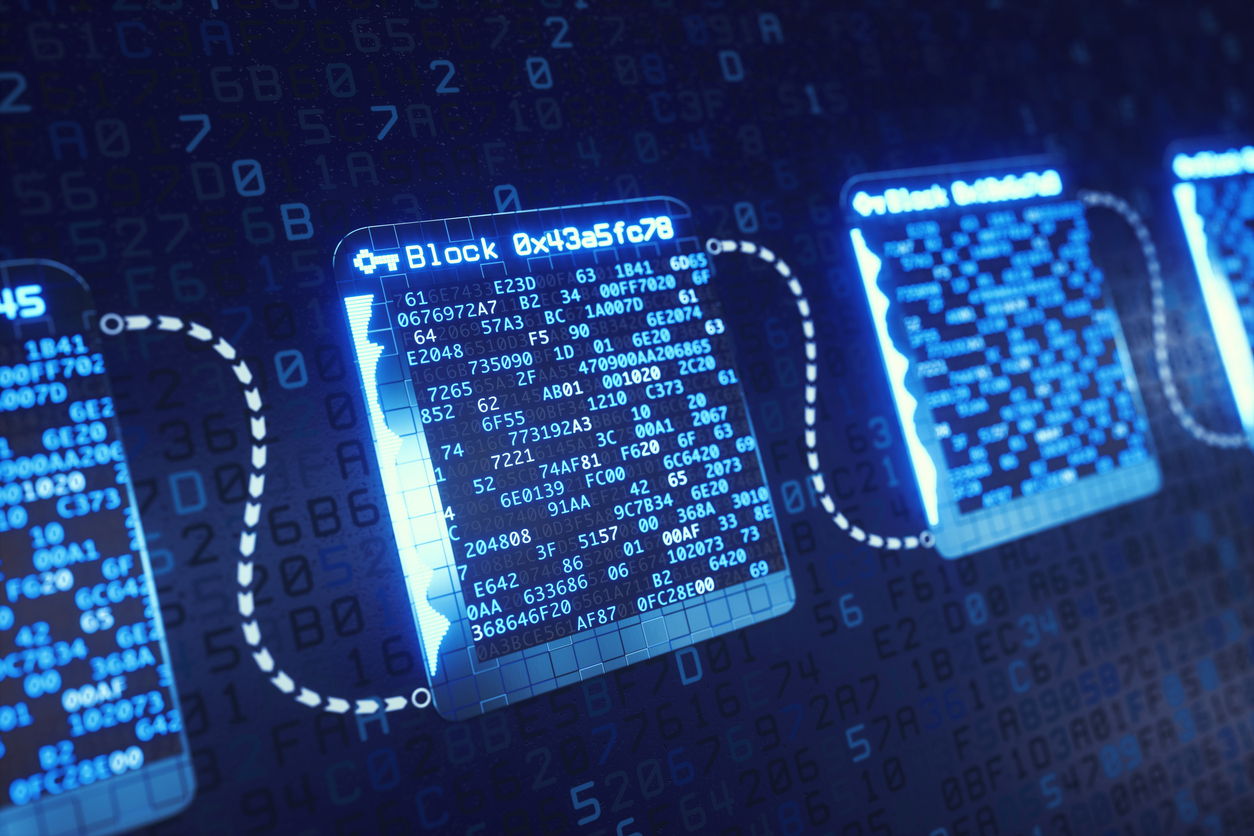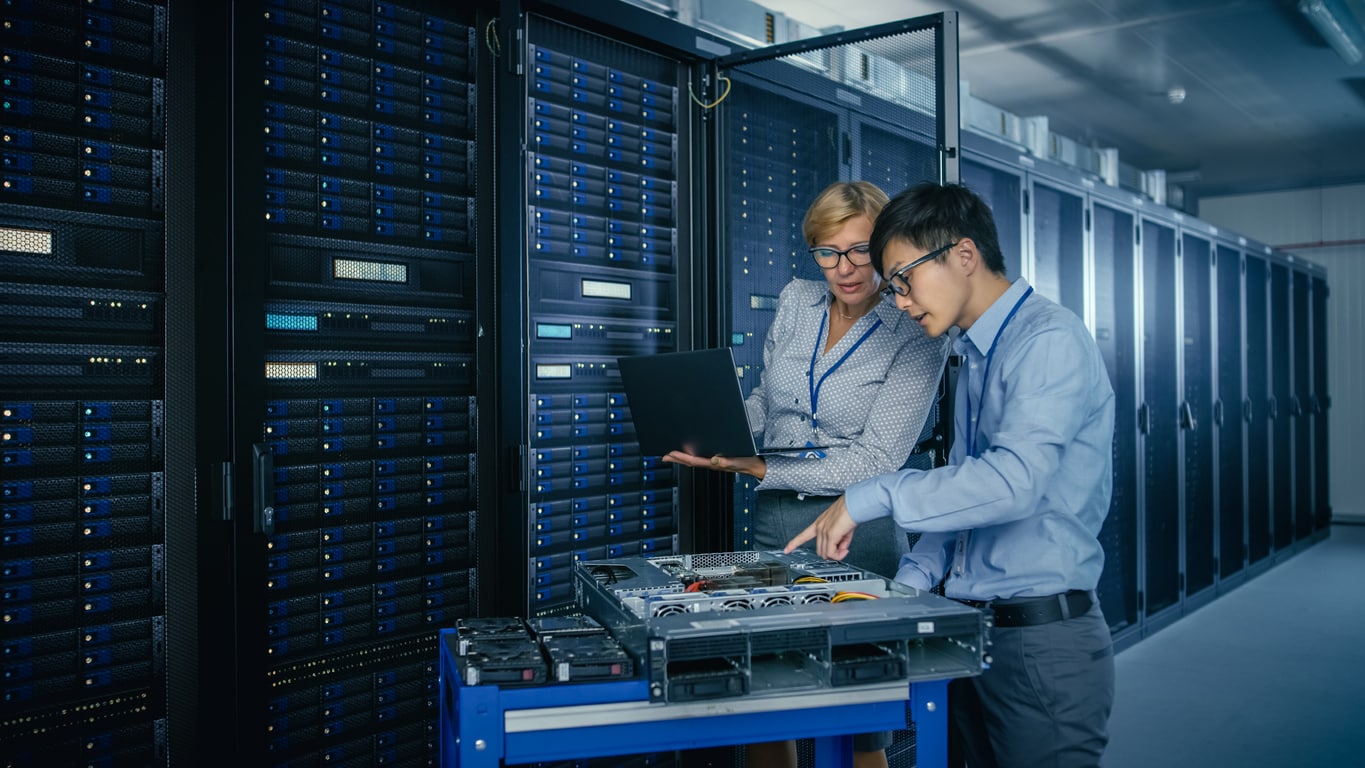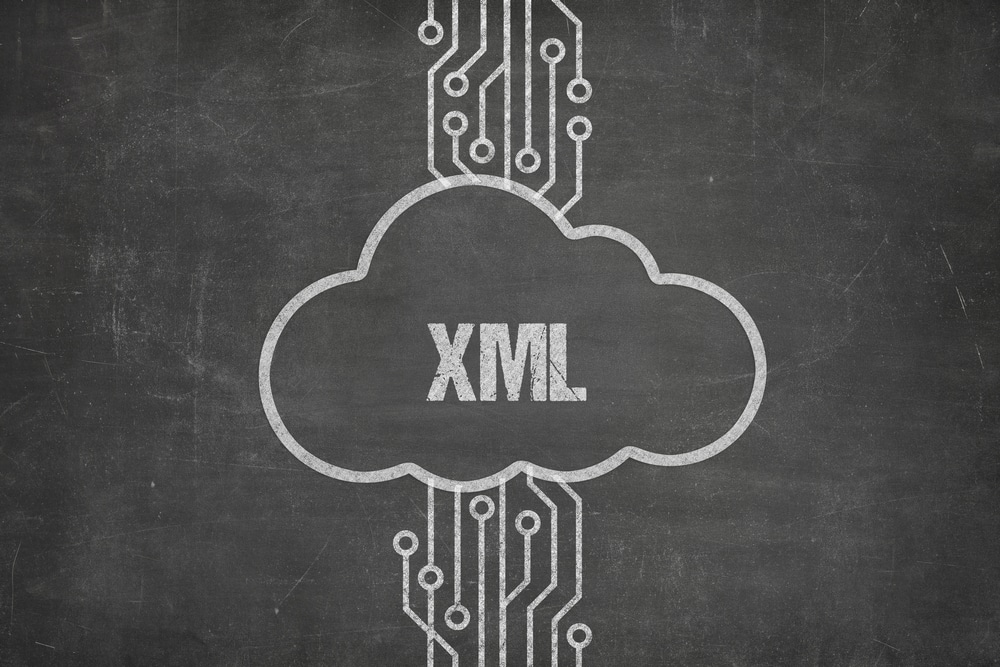Blockchain Introduction
Blockchain is a method of storing data so that it is difficult or impossible to alter, hack, or cheat it. A blockchain is a digital ledger of duplicated transactions and distributed across the network of computers that make up the blockchain. Each block in the chain comprises several transactions, and when a new transaction occurs on the blockchain, a record of that transaction is recorded to each participant’s ledger. Distributed Ledger Technology is a decentralised database that is administered by various people (DLT).
Blockchain is a new distributed ledger technology in which transactions are recorded using a hash, a cryptographic signature that cannot be changed. This means that if one block in a chain is changed, it will be obvious that the entire chain has been tampered with. If hackers wanted to take down a blockchain system, they’d have to modify every block in the chain across all distributed versions of the chain.
As additional blocks are added to the chain, blockchains like Bitcoin and Ethereum expand in size, greatly boosting the security of the ledger.
Who is a Blockchain Developer?
Blockchain developers work on developing and optimising blockchain protocols, designing the architecture of blockchain systems, and creating smart contracts and web apps that use blockchain technology. Any developer who works on the development of blockchain technology is referred to as a blockchain developer. Blockchain developers may now be divided into two categories. Let’s take a Joak at both of these types.
The Different Types of Blockchain Developers
1. Blockchain Developers at the Core The architecture of a blockchain system, how its protocols should be designed, the design of the consensus protocol, and other high-level decisions and development relating to blockchain technology are largely the responsibility of core blockchain developers. On the other hand, Blockchain software developers produce decentralised apps that operate on blockchain technology using the architecture and protocols developed by Core Blockchain developers.
2. Software Blockchain Developers
Blockchain software developers have their own set of obligations. These tasks have nothing to do with the system’s architecture or consensus design. Blockchain software developers create decentralised applications or Dapps using blockchain technology, just the way a regular web developer uses the protocols and architectural structure set up by a core web architect to build web apps.
Roles and Responsibilities of a Blockchain Developer
Let’s start with the responsibilities of a core blockchain engineer.
1. Blockchain Developer at the Core As previously stated, a core blockchain developer is typically involved in the design, architecture, and security of a blockchain system. In a nutshell, they have the following responsibilities:
a.Blockchain protocol design
b. Design of network consensus protocols and security patterns
c. Developers design the network architecture
d. The entire network is under supervision by developers.
2. Software Blockchain Developer
The Roles of Software Blockchain Developer is as follows.
1. Development of Smart Contracts
2. Development of interactive front-end designs for Dagos
3. Backend development pertaining to Blockchain
4. Supervision of the entire stack running their Dapps
Blockchain Developer Job Description
1. A bachelor’s or master’s degree in computer science, information technology, engineering/or a related field
2. A bachelor’s or master’s degree in computer science, information technology, or engineering/or a related field
3. Experience with platforms such as Quorum, Hyperledger, Ethereum, and others.
4. Experience working with various PAAS solutions provided by Azure, AWS, and other cloud platforms
5. A thorough knowledge of common methods and data structures 6. Expertise in one (or more) of the following programming languages: C++, Java, JavaScript, and NodeJS
7. Solid knowledge of bitcoin and blockchains
8. Should be able to write multithreaded code that is efficient.
9. Understanding of basic cryptography and peer-to-peer networks.
10. Excellent interpersonal and communication skills
11. Add more information as needed to meet your needs.
12. Brainstorm and assess applications for new tools and technologies.- Research, analyse, design, create, test, and manage Blockchain applications.
13. Provide ongoing support and maintenance for current and future distributed apps in order to ensure seamless integration and workflow.
14. Create and manage documentation for new and current solutions.
15. Meet with key stakeholders, technical partners, and the developer community to discuss significant issues.
16. Work as part of a team and contribute to the project’s long-term planning.
Salary Trends of a Blockchain Developer in India/US
Salary of a Blockchain Developer in the U.S and India
The average annual compensation for a professional in the Blockchain Developing
occupation is $90,923. When compared to the American median wage of $39,810, that
the figure may appear excellent, but several factors might influence a Blockchain Developer's
prospective salary, including industry, region, education, experience, and job function
and level.
Given below are the Salary Expectations of an IT Blockchain Developer in both, US as well
as Indian Format:
IT Blockchain Developer Salary: Based on Indian Company
Service-based Company- Rs. 30,000 to Rs. 60,000
Product-based Company- Rs. 90,000 to Rs. 160000
Startup – Rs. 70000- Rs. 100000
IT Blockchain Developer Salary: Based on US Based Company
Service-based Company: $127,123
Product-based Company – $170000
Startup – $85177
Skills Required to be a Blockchain Developer
1. Blockchain Architecture
A blockchain developer should have a thorough understanding of the technology, how it works, and how it is built. You should be comfortable with cryptographic hash functions, consensus, and distributed ledger technologies.
2. Development of Smart Contracts
In 2021 and beyond, smart contracts will be the most extensively used application, and the release of Ethereum 2.0 is the key reason. Beginners should be aware that every blockchain seeks to integrate smart contract capability into its system so that business logic can be readily applied on the blockchain layer. As a result, developers interested in working in the blockchain industry should learn about smart contract creation, as well as its importance and business applications. Learning network-specific languages such as Solidity, Viper, Chaincode, and others is usually required.
3. Data Structures
To become a blockchain developer, you’ll need to learn data structures because you’ll be working with a variety of data structures on a daily basis because you’ll be building networks
4. Web-Development
As a blockchain developer, you’ll largely be working on web applications. You’ll need to study web design, app development, and programming, which will all help you create better Dapps. Web development is essential because most firms require blockchain developers to design apps that users with no or limited knowledge of blockchain can use.
5. Encryption
To make cryptocurrency transactions, you’ll need a wallet and the key to that wallet because it establishes your ownership of the wallet; that key is required. The encryption and decryption of public and private keys secure cryptocurrency transactions; Cryptographic hashing is another important idea in cryptography. In cryptography, hashing refers to the process of producing a particular length output from any length input.
6. Object-Oriented Programming Fundamentals
Object-oriented programming, or OOPS, is the core of most computer languages. As a result, it has become a significant part of the blockchain world. It will help you reuse code, solve complex problems, gain flexibility through polymorphism, and employ modularity for easy troubleshooting if you have a firm grasp of it.
7. the importance of standards and eco-systems
Get familiar with blockchain principles and practices and understand how they may be implemented within your company environment to construct an effective blockchain system to streamline your business process and achieve the business outcome.
How to Become a Blockchain Developer?
Leam as much as you can about the principles and fundamentals of blockchain technology. Know everything there is to know about blockchain topics, including cryptography, consensus, blockchain protocols, public-key encryption, decentralisation, smart contracts, wallets, hashing, and anything else related to blockchain design and operations. Read white papers, enrol in courses, work through tutorials, attend online training, and pursue blockchain certifications. For learning blockchain, a number of free and low-cost resources are now available.
To better comprehend the fundamental concepts of blockchain, get hands-on experience with all parts of the technology. Consider establishing a private blockchain network. Examine decentralised applications accessible on sites like GitHub and then submit your own. Consider purchasing a small amount of bitcoin to understand how it operates from a user’s standpoint.
Learn about the current blockchain development tools, technologies, and platforms, such as EOS, Ethereum, Ripple, and Hyperledger.
Advantages of Blockchain Development are
10 Business Advantages of Blockchain Development
Blockchain comprises a growing number of ledgers called blocks that are linked and encrypted using the most advanced encryption available. The Blockchain is run by a peer-to-peer network, making the records unchangeable. The following are some of the advantages of Blockchain software for businesses:
1. Transactions with Secure Payments
The most widely used Blockchain applications are financial transactions. All cryptocurrencies rely on technology to function. Small business owners can avoid the use of intermediaries and the exorbitant transfer fees charged by banks. Above all, the transaction is recorded in Blockchain networks, and the code is viewed as proof by everyone.
2. Contracts that are Fraud-Proof
A smart contract is a computer programme that allows you to facilitate, verify, and execute a contract digitally. On the Blockchain, smart contracts eliminate the need for third parties. After they’re formed, the transactions are tamper-proof and irreversible.
3. Storage on the Cloud
Your company can use Blockchain to store data in the cloud in a quick and cost-effective manner. The Blockchain, which is typically used with a private key, allows for storing data and digital assets without needing a server farm. You can share data with the rest of the world using other people’s hard discs. A Blockchain producer leases hard drive space, and renters pay to use it. Every single piece of data on the network is encrypted.
4. Establishing Provenance
Provenance is a traceable data system that establishes assets or intellectual property ownership. When assets are traded on the Blockchain, the buyer and seller do not require separate transaction ledgers. Both parties can share a ledger that updates automatically after each new transaction.
5. Digital Personality
Fraud has become commonplace in the financial sector and many other industries. Businesses are turning to Blockchain technology to defend themselves from fraud, and Blockchain systems make it simple to track and maintain digital identities in access authentication.
6. Accounting
Using Blockchain apps rather than traditional ledgers is far safer. It eliminates human mistakes in all accounting tasks and makes data manipulation difficult for fraudsters.
7. Managing the Supply Chain
Blockchain technologies in the supply chain decrease costs and make it easier to track the movement of items. This increases ecosystem transparency and makes payments and other transactions easier.
8. Enhanced Transparency
Even while the major selling point of the Blockchain is its potential for security and anonymity, it also provides higher transparency in corporate operations. Everything is done on a central platform, from contracts to money transfers and accounting, leaving a clear audit trail.
9. Quality Control
If an issue arises in the supply chain, Blockchain solutions can assist in locating the source of the problem. You can then take the necessary steps to avoid downtime in your company.
10. Energy Availability
Blockchain technology can be used to keep track of your company’s energy costs. Typically, renewable energy usage is tracked via tradable certificates, which have shown to be ineffective, and Blockchain technology can bring this activity to a whole new level of efficiency.
Frequently Asked Questions
Q1. How much do you know about blockchain technology? What is the difference between the blockchains of Bitcoin and Ethereum?
The blockchain is a distributed database of immutable records that is decentralised. With the advent of Bitcoins, the technology was discovered (the first cryptocurrency). It’s a tried-and-true strategy that a lot of businesses are employing right now. Everything is secure, and it’s an open-source method so that it can be relied on in the long run.
Q2. What is the underlying premise of blockchain technology?
It allows information to be shared among users without having to be copied
Q3. What are the various Blockchain types? There are three types of blockchains:
Public
Consortium
Private
Q4. What makes Blockchain such a secure method?
For a variety of reasons, blockchain can be trusted. Because of its open-source nature, it is compatible with various business apps. It has to do with safety. Because it was designed for online transactions, the creators paid great care to keep the security up to date. Blockchain can simply be considered regardless of the type of business one has
Q5. What are the two sorts of records found in a blockchain database? Block records and transactional records are the two types of records. Both of these records are freely accessible, and the best part is that they can be linked together without having to follow complicated methods.
Q6. Can I change the data after it has been written in a block?
No, you won’t be able to do so. If any changes are required, the organisation just removes the data from all other blocks. Data must be handled with extreme caution when utilising this strategy for no other reason than this needs to
Q7. What are Block Identifiers?
The block header hash and the block height are used to identify blocks in Blockchain.
Q8. Is it feasible to erase one or more blocks from a blockchain network? Yes, it is possible. There are occasions when simply a fraction of this online ledger needs to be taken into account. This can be accomplished quickly and easily with the help of default choices and filters.
Q9. What exactly do you know about the security of a block?
A robust cryptographic hash algorithm protects a block or the entire blockchain. A hash pointer is assigned to each block. Any change in the block’s constituents will result in a change in the block’s hash identification. As a result, it provides a high level of security. As a result, there is no need to be concerned about the safety or security of data stored in a block.
Q10. What is the definition of a ledger? Is Blockchain a tamper-proof ledger? Blockchain is thought to be incorruptible. Any ill-intentioned person acting on their own is impotent. “An attacker would need to control more than half of the network’s entire computational power to seize control,” Augier argues. “We hope that’s just a hypothetical situation, but we can’t be certain.” If this occurs, the person will take every measure to avoid being discovered.”
Q11: What distinguishes a blockchain ledger from a traditional ledger? The first, and perhaps most important, distinction is that Blockchain is a decentralised digital ledger. Compared to a typical ledger, this system has a far smaller chance of inaccuracy. A conventional ledger is one that is created by hand or via human labour, but the Blockchain automates all of its processes. All that’s left to do now is set it up correctly and according to the directions.
Q12: What kind of data can be stored on a Blockchain? Is this subject to any limitations? In the Blockchain approach, there are no limitations on the kind of documents that can be kept. Blockchain is being utilised to secure various types of documents in a range of sectors.
The following are some examples of records that can be stored on Blockchains: Records of medical transactions.
Identity management
Transaction processing
Business transactions
Management activities
Documentation
Conclusion
The blockchain industry is likely to grow significantly in the next years. Many huge companies, like Facebook, Twitter, and Tesla, have already shifted to this amazing technology, and there is still a lot to learn about it. Do you want to be a part of it? Why not begin by earning an online blockchain certification to give your career a boost? According to reports, blockchain jobs have increased by about 271 per cent since 2020 and are predicted to quadruple by 2022.






